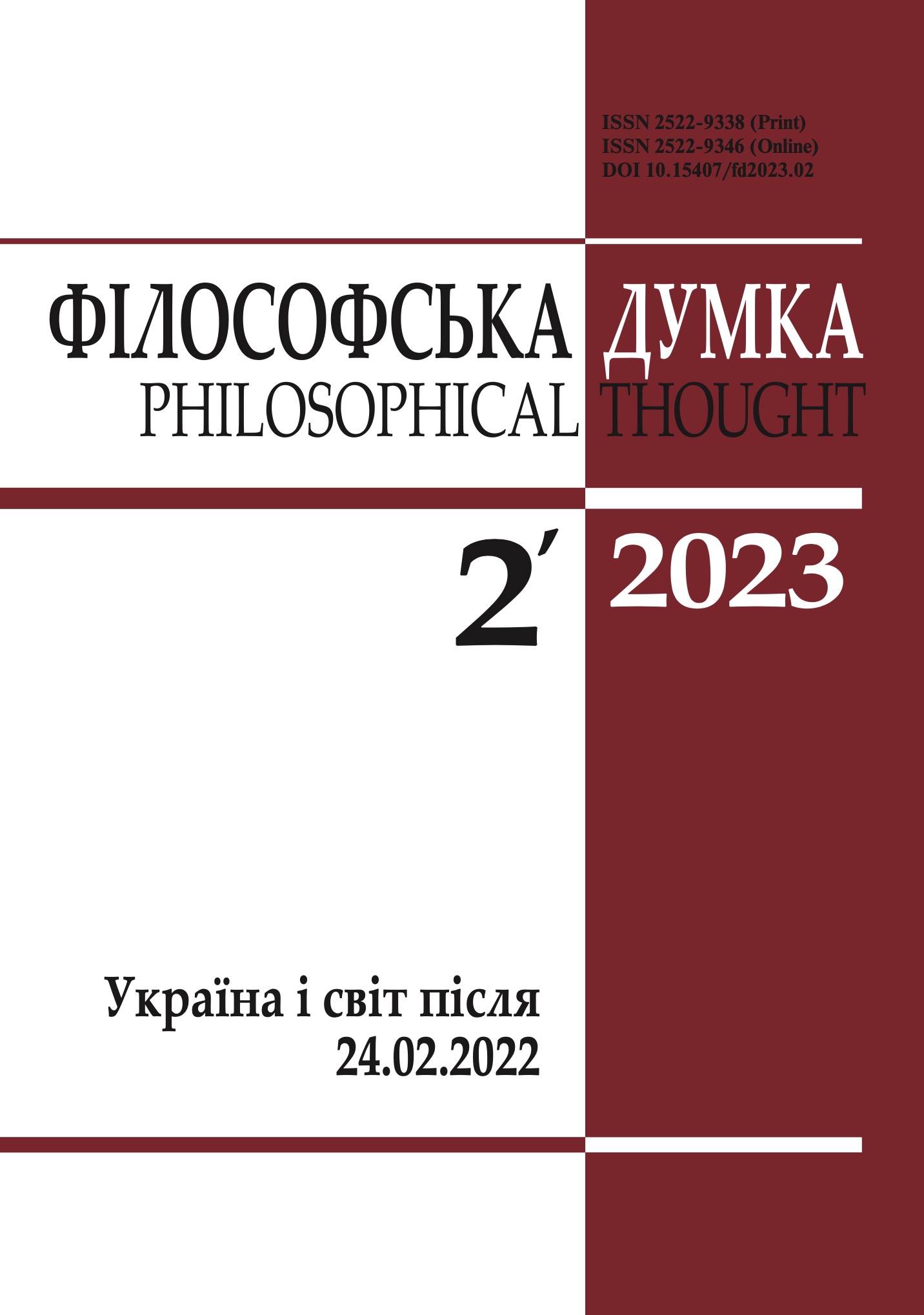OLD AND NEW DIFFERENCES: SOCIAL (RE)INTEGRATION AFTER THE WAR
DOI:
https://doi.org/10.15407/fd2023.02.099Keywords:
social integration, inclusion, immigrants, social differences, social relations, identityAbstract
This article examines the issues of social (re)integration in Ukraine, which were actualized during the Russian-Ukrainian war in 2014-2022. The first part of the article is devoted to the consideration of theoretical issues related to the conceptualization of social integration in the social sciences and the role of the state in reproducing social relations. The author assumes that during the last decades, ideas about the role of the state in these processes have changed significantly, which was caused by the departure of the governments of developed democratic countries from the policy of the welfare state. This caused a reorientation of the state towards policies of inclusion, that is, targeted support and assistance to the most vulnerable social strata. The second part of the article is devoted to the consideration of the processes of social integration of migrants and refugees during the war in Ukraine. The author concludes that during the first full-scale invasion, processes of rethinking one's own national identity intensified in Ukrainian society. The armed confrontation and the catastrophic consequences caused by it contributed to the nationwide consolidation of Ukrainians and neutralized socio-cultural differences, which for a long time became the cause of political opposition and electoral divisions. Instead, the long stay of part of the territory and citizens of Ukraine under occupation under conditions of repressive and propaganda pressure, violent mobilization to the armed forces of the self-proclaimed republics and participation in the armed confrontation on the side of the occupiers revealed new divisions between Ukrainians who were on different sides of the front line. These divisions will obviously become an obstacle to the successful reintegration of Ukrainians after de-occupation, which will require a balanced and careful integration policy from the state authorities during the post-war reconstruction.
References
Castel, R. (1995). Les Métamorphoses de la question sociale, une chronique du salariat. Fayard.
https://doi.org/10.3406/agora.1995.1517
Dembitskyi, S. (2022). Sociological monitoring "Ukrainian society". Public opinion in Ukraine after 10 months of war. [In Ukranian]. Retrived from: https://sau.in.ua/app/uploads/2023/02/prezentacziya- monitoryngu-2022.pdf
Elias, N. (2001). Society of Individuals / Trans.from German. [In English]. New York, London: Continuum. [=Elias 2001]
Kaldor, M. (2012). New and Old Wars. Organised Violence in a Global Era. Polity Press.
Kaufmann, F.-K. (2002). Sozialpolitik und Sozialstaat:_ Soziologische Analysen. VS Verlag für Sozialwissenschaften.
https://doi.org/10.1007/978-3-322-99962-7
Kulyk, V. (2023). Language and identity in Ukraine at the end of 2022. [In Ukranian]. Retrieved from: https://zbruc.eu/node/114247
Lockwood, D. (1976). Social Integration and System Integration. In: Social Change: Explorations, Diagnoses and Conjectures (pp. 370-383). John Wiley & Sons Inc.
OSCE. (2018). Good practices in migrant integration: trainee's manual. Retrived from: https://www.osce.org/files/f/documents/a/2/393554.pdf
Paniotto, V. (2022). Inter-ethnic prejudice in Ukraine, September 2022. [In Ukranian]. Retrieved from: https://www.kiis.com.ua/?lang=ukr&cat=reports&id=1150&page=4
Rating Group. (2023). Comprehensive study "How the war changed me and the country. Results of the year". [In Ukranian]. Retrieved from: https://ratinggroup.ua/files/ratinggroup/reg_files/rating_war_changed_me_and_the_country_february_2023.pdf
Scheff, T. (2007). A Concept of Social Integration. Philosophical Psychology, 20(5), pp. 579-593.
https://doi.org/10.1080/09515080701549314
Shulga, M. (2016). The concept of integration and related concepts. [In Ukranian]. In: Socio-psychological factors of integration of Ukrainian society (pp. 15-19). Kyiv: Institute of Sociology, of the National Academy of Sciences of Ukraine.
Theissen, G. (2004). Supporting Justice, Co-Existence and Reconciliation after Armed Conflict: Strategies for Dealing with the Past. Retrived from: https://berghof-foundation.org/library/supporting-justice-co-existence-and-reconciliation-after-armed-conflict
https://doi.org/10.1007/978-3-663-05642-3_20
Zlobina, O. (2016). Integration "from below": the life world versus the system. [In Ukranian]. In: Socio- psychological factors of integration of Ukrainian society (pp. 54-61). Kyiv: Institute of Sociology, of the National Academy of Sciences of Ukraine.
Downloads
-
PDF (Українська)
Downloads: 344
Published
How to Cite
Issue
Section
License
Authors who publish with this journal agree to the following terms:
- Authors retain copyright and grant the journal right of first publication.
- Authors are able to enter into separate, additional contractual arrangements for the non-exclusive distribution of the journal's published version of the work (e.g., post it to an institutional repository or publish it in a book), with an acknowledgement of its initial publication in this journal.
- Authors are permitted and encouraged to post their work online (e.g., in institutional repositories or on their website) prior to and during the submission process, as it can lead to productive exchanges, as well as earlier and greater citation of published work (See The Effect of Open Access).


